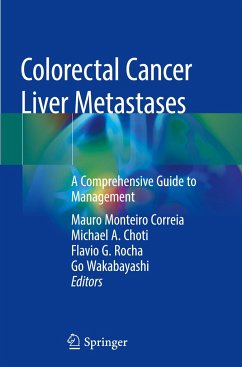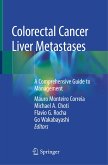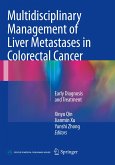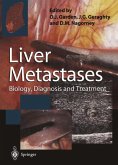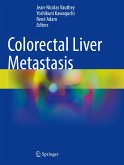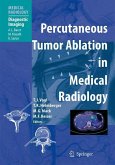Colorectal cancer is the third most commonly diagnosed condition in oncology, affecting around 1.23 million individuals per year, according to recent statistics. Of these patients, about 50% will develop liver metastases and approximately 20% will present a stage IV disease at diagnosis. These statistics make colorectal liver metastases (CLM) an issue of major importance in current oncology.
The area of CLM is subject to great and continuous advances, as its pathophysiologic mechanisms are better understood and more therapeutic and surgical options are developed. Consequently, all professionals involved with the diagnosis, treatment and follow up of CLM should be kept up to date with the latest advances on the field, to provide high standard medical care to their patients.
This book is designed to present the state-of-the-art in CLM management and, in doing so, to review the current evidence on CLM, discussing all important topics in the field. Coverage is broad and comprehensive, encompassing introductory topics (history, definitions, epidemiology, etc.), basic science subjects (molecular biology, genetics, dissemination process, etc.) and practical clinical topics (tumor behavior, diagnosis, drug therapy, radiation therapy, surgery, ablation, multidisciplinary teams, etc.).
Although comprehensive on the coverage and selection of topics, each chapter is concise and objective, dissecting topics in a practical and direct format. Evidences and recommendations are included. Chapters display a brief introduction of the common knowledge, go straight to the detailed revision of the most recent years of the literature, and end with practical closing observations.
This book is a tool for professionals (general and cancer surgeons, HPB surgeons, clinical oncologists, gastroenterologists and medical residents) and interns who search for a qualified and reader friendly revision on topics concerning Colorectal Cancer Liver Metastases.
The area of CLM is subject to great and continuous advances, as its pathophysiologic mechanisms are better understood and more therapeutic and surgical options are developed. Consequently, all professionals involved with the diagnosis, treatment and follow up of CLM should be kept up to date with the latest advances on the field, to provide high standard medical care to their patients.
This book is designed to present the state-of-the-art in CLM management and, in doing so, to review the current evidence on CLM, discussing all important topics in the field. Coverage is broad and comprehensive, encompassing introductory topics (history, definitions, epidemiology, etc.), basic science subjects (molecular biology, genetics, dissemination process, etc.) and practical clinical topics (tumor behavior, diagnosis, drug therapy, radiation therapy, surgery, ablation, multidisciplinary teams, etc.).
Although comprehensive on the coverage and selection of topics, each chapter is concise and objective, dissecting topics in a practical and direct format. Evidences and recommendations are included. Chapters display a brief introduction of the common knowledge, go straight to the detailed revision of the most recent years of the literature, and end with practical closing observations.
This book is a tool for professionals (general and cancer surgeons, HPB surgeons, clinical oncologists, gastroenterologists and medical residents) and interns who search for a qualified and reader friendly revision on topics concerning Colorectal Cancer Liver Metastases.

